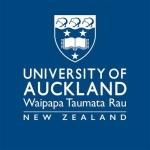Stem cells: hope, hype and progress
For the first time in New Zealand, a unique workshop brought together scientists and researchers on stem cells, people who have spinal cord injuries and their carers, along with the health professionals who provide support.
The one-day workshop, held at the Grafton Campus of The University of Auckland on 6 June, aimed to advance knowledge and encourage discussion on the critical issues around stem cell research, the promise of new stem cell treatments and seeking of experimental therapies overseas.
The workshop was free, and all with an interest in the issues were invited to attend, including researchers, clinicians, carers and those with a spinal cord injury or neurological condition.
“The workshop had been held previously in Brisbane, Sydney, Melbourne and Adelaide in Australia and had been very successful there,” says Professor Louise Nicholson (Associate Dean, Research, in the Faculty of Medical and Health Sciences) “perhaps because it focuses on the very latest findings, and gives a rare opportunity for researchers and people who have the condition to exchange ideas and look at the issues from a whole range of perspectives.”
Stem cell science has captured the public imagination and has been touted as an advance with revolutionary possibilities for people with a range of diseases and disabilities.
While it undoubtedly shows much promise, community expectations can often run high on what stem cells will deliver. The first clinical trials using stem cells for spinal cord injury have started only recently, and it is still too soon to know whether they are effective. However many clinics and companies overseas are already offering a range of unproven cell treatments for spinal cord injury and many other conditions.
“It is of advantage to those who have spinal injuries and are seeking effective treatment to be as informed as possible about the latest developments,” says Professor Nicholson. “At the same time researchers and clinicians can greatly benefit from a better understanding of what the issues are from the perspective of someone who has a spinal cord injury.”
The workshop, entitled Stem cells: Hype, hope and progress, included addresses by Professor Alan Mackay-Sim, Director of the National Adult Stem Cell Research Centre at Griffith University in Queensland and Dr Megan Munsie, Head of the Education, Ethics, Law and Community Awareness Unit, Stem Cells Australia. Also on the programme was a documentary movie called Indestructible, which follows film-maker Ben Byer as he searches the world for answers after being diagnosed with the fatal condition ALS (Amyotrophic lateral sclerosis), a disease of the nerve cells in the brain and spinal cord that control voluntary muscle movement.
The workshop, hosted by the Australian and New Zealand Spinal Cord Injury Network, took place on Wednesday 6 June from 11am to 3.30pm in Room 505-011, Boyle Building.
